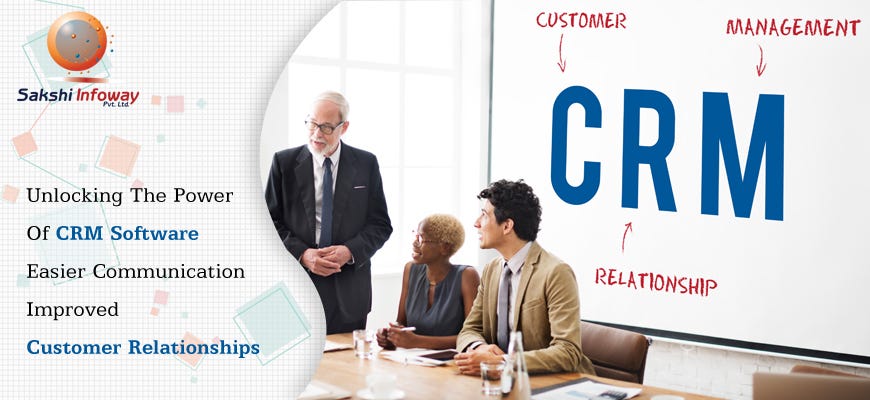CRM software manages customer interactions and data for improved customer relationship management. It organizes and automates sales, customer service, and marketing processes.
Every business aims to effectively manage its customer relationships to drive growth and success. To achieve this goal, businesses rely on Customer Relationship Management (CRM) software. CRM software enables companies to organize, analyze, and utilize customer data to improve customer relationships.
By centralizing customer information and providing access to multiple departments, CRM software streamlines sales, marketing, and customer service processes. The software enables businesses to track customer interactions, record customer data, and automate tasks, leading to enhanced customer satisfaction and loyalty. We will explore how CRM software works and its benefits in managing customer relationships and enhancing overall business performance.
Understanding CRM Software
CRM software, also known as Customer Relationship Management software, is a powerful tool that helps businesses manage and streamline their customer interactions. It allows companies to track and organize customer data, improve customer service, and enhance sales and marketing efforts. CRM software is designed to centralize customer information, including contact details, purchase history, and communication records, in one place, simplifying the process of managing customer relationships.
One of the key functions of CRM software is its ability to automate and streamline various tasks, such as lead generation, contact management, and sales tracking. It enables businesses to track and analyze customer behaviour, preferences, and interactions, providing valuable insights for targeted marketing campaigns and personalized customer experiences.
Using CRM software brings numerous benefits to businesses. It allows companies to improve customer satisfaction, boost sales, and increase customer retention rates. By providing a comprehensive view of customer data, CRM software enables businesses to deliver personalized and tailored experiences to their customers, resulting in stronger customer relationships and brand loyalty.
Benefits of CRM Software |
|---|
| Improved customer satisfaction |
| Enhanced sales performance |
| Better customer retention |
| Streamlined marketing efforts |
| Efficient lead management |
CRM Software Components |
|---|
|
CRM Implementation Process
CRM Implementation Process:
- Needs assessment and goal setting: Assess the business requirements and define goals for implementing a CRM software.
- Identifying business requirements: Identify and prioritize the specific needs of the business that the CRM software must address.
- Setting CRM implementation goals: Clearly define the objectives and targets for the CRM implementation.
- Vendor selection and software customization: Research and select a suitable CRM software vendor and customize it to align with the business requirements.
- Evaluating CRM software options: Evaluate different CRM software options to find the most suitable one for the business.
- Customizing the software to meet specific business needs: Tailor the CRM software according to the unique needs of the business.
- Data migration and system integration: Transfer existing data to the CRM system and integrate it with other business applications.
- Transferring existing data to the CRM system: Migrate and import data from existing databases or spreadsheets into the CRM system.
- Integrating the CRM software with other business applications: Integrate the CRM software with other systems, such as email or accounting software, for seamless data flow.
- User training and adoption: Provide training to employees on how to use the CRM software effectively.
- Training employees on using the CRM software: Educate and train employees on the features, functionalities, and best practices of the CRM software.
- Promoting user adoption and engagement: Encourage employees to embrace and actively use the CRM software to enhance productivity and customer relationships.
.jpg)
Credit: www.signupgenius.com
CRM Software Integration
CRM software integration allows businesses to streamline their communication, marketing, and operations by connecting various tools and systems. By syncing emails and phone calls with CRM records, businesses can easily track and manage customer interactions. This integration also enables businesses to manage customer interactions across multiple channels, ensuring a consistent and personalized experience. Additionally, integrating CRM software with marketing tools allows businesses to connect CRM data with marketing campaigns, track ROI, and measure conversion rates.
Integration with other business systems, such as ERP and accounting systems, helps in sharing data between different departments, ensuring a smooth flow of information and eliminating the need for manual data entry. This further enhances efficiency and accuracy in decision-making processes. Overall, CRM software integration enhances collaboration, improves customer relationship management, and empowers businesses to make data-driven decisions.
You Can Read: Crm System for Business
| Benefits of CRM Software Integration |
|---|
| Synchronization of emails and phone calls with CRM records |
| Management of customer interactions across channels |
| Connecting CRM data with marketing campaigns |
| Tracking ROI and conversion rates |
| Integration with ERP and accounting systems |
| Sharing data between CRM and other departments |
CRM Software Best Practices
CRM software works by effectively managing and organizing customer data. To ensure data quality management, it is crucial to regularly update and clean customer data. This helps in maintaining accurate and up-to-date information. Implementing data validation rules further enhances the quality of the data inputted into the CRM system.
Automation and workflow optimization plays a significant role in streamlining processes. By automating repetitive tasks, teams can work more efficiently and focus on higher-value activities. Creating efficient workflows specific to different teams ensures smooth collaboration and enhances overall productivity.
Continuous improvement and analysis are essential for leveraging the data stored in the CRM system. Analyzing CRM data provides valuable insights into customer behaviour, preferences, and trends. This data-driven approach enables businesses to make informed decisions, driving growth and success.
Frequently Asked Questions Of How Does A Crm Software Work?
How Does A CRM Software Work?
A CRM software works by storing and organizing customer data, tracking interactions, and automating processes to improve customer relationship management. It helps businesses streamline sales, marketing, and customer service activities, providing a centralized database of customer information for efficient communication and personalized customer experiences.
What Are The Benefits Of Using CRM Software?
Using CRM software offers several benefits such as improved customer relationships, increased sales, enhanced productivity, streamlined processes, better data analysis, and effective marketing campaigns. It helps businesses understand customer needs and preferences, enables targeted marketing efforts, and provides valuable insights for informed decision-making.
Can CRM Software Integrate With Other Tools?
Yes, CRM software can integrate with various tools and applications like email clients, social media platforms, project management software, and e-commerce systems. Integration allows seamless data sharing, automates workflows, and provides a comprehensive view of customer interactions across different channels, improving efficiency and enhancing the overall customer experience.
Is CRM Software Suitable For Small Businesses?
Absolutely! CRM software is beneficial for small businesses as it helps them organize customer data, automate tasks, and streamline operations. It enables better customer communication, lead management, and sales tracking, resulting in improved customer satisfaction, increased sales, and business growth.
CRM software can be customized to meet the specific needs and budgets of small businesses.
Conclusion
To sum up, CRM software is an indispensable tool for streamlining business operations, enhancing customer relationships, and boosting productivity. By centralizing data, automating processes, and providing actionable insights, CRM software simplifies lead management, improves communication, and accelerates sales cycles.
With its user-friendly interface and customizable features, organizations can efficiently track customer interactions, analyze data trends, and deliver personalized experiences. Embracing CRM software enables businesses to optimize their operations and achieve long-term growth in today’s competitive landscape.




